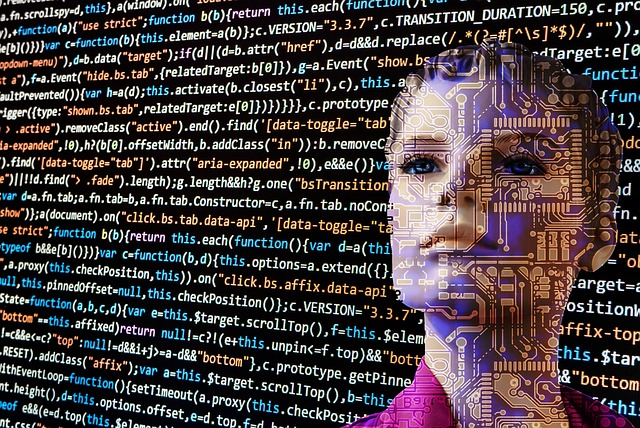An Artificial Intelligence engineer is like a magician. With their remarkable ability, they develop solutions that can perform tasks previously reserved for human intelligence, paving the way for groundbreaking advancements.
Artificial Intelligence engineers get themselves equipped with tools and techniques such as machine learning, deep learning, natural language processing, computer vision etc. Are you curious to know about Artificial Intelligence engineer as a career, then reach further.
Introduction
Becoming an Artificial Intelligence engineer is an exciting career path with immense potential. AI engineering involves designing, developing, and deploying intelligent systems that can learn, adapt, and make decisions. To pursue this career, you need a strong foundation in programming, mathematics, and statistics.
A degree in computer science, data science, or an AI-related field is beneficial. However, self-study through online courses and tutorials can also be valuable. Python and R are widely used programming languages in AI engineering, and proficiency in AI libraries and frameworks like TensorFlow and PyTorch is crucial. Understanding machine learning, deep learning, and related algorithms is essential.
Data acquisition, preprocessing, and model training are vital steps in the AI engineering process. Familiarity with infrastructure requirements and deployment considerations, including cloud platforms and ethical considerations, is also important. Continuous learning and keeping up with advancements in the field are necessary for success as an AI engineer. By acquiring these skills and knowledge, you can embark on a rewarding career in AI engineering.
- Essential skills
- Education roadmap
- Key Concepts of Artificial Intelligence
- Foundation for Artificial Intelligence
- Artificial Intelligence Programming Languages
- Machine learning algorithms and techniques
- Deep learning concepts
- Staying updated on your Artificial Intelligence journey
- Artificial Intelligence Conferences around the world
- Artificial Intelligence Examples
- Key Takeaways
- Frequently Asked Questions
Essential skills
To become an AI engineer, you need essential skills in programming, mathematics, and statistics. Proficiency in programming languages like Python, Java, or C++ is vital for implementing algorithms and building AI models. Strong coding skills enable you to handle data manipulation, implement machine learning algorithms, and optimize performance.
Mathematics plays a crucial role in AI engineering, requiring a solid understanding of linear algebra, calculus, and probability theory. These mathematical concepts help you comprehend the foundations of machine learning algorithms and neural networks. Statistics is another indispensable skill as it enables you to analyze data, make informed decisions, and evaluate model performance.
You need to grasp concepts like hypothesis testing, regression, and probability distributions. Proficiently applying statistical techniques enhances your ability to draw insights from data and ensure the reliability of AI models. By honing your programming, mathematics, and statistics skills, you’ll be well-equipped to tackle the challenges of AI engineering and excel in this dynamic field.
Education roadmap
When pursuing a career as an AI engineer, you have various educational paths to choose from.
- Formal degrees in computer science, data science, or AI-related programs offer comprehensive and structured learning opportunities.
- Online courses and tutorials allow you to learn at your own pace and customize your curriculum. Platforms like Coursera, Udacity, and edX offer AI-specific courses taught by industry experts.
- A combination of formal degrees and self-study options can be beneficial.
The degrees provide a strong foundation in programming, algorithms, and data analysis, equipping you with the necessary theoretical knowledge. Additionally, they often include hands-on projects and internships to gain practical experience.
These self-study options focus on practical skills and often provide project-based learning experiences. Supplementing your learning with books, research papers, and participating in open-source projects can further enhance your knowledge.
Regardless of the educational path you choose, a combination of formal degrees and self-study options can be beneficial. It’s important to stay curious, continually update your skills, and participate in AI communities and competitions to further develop your expertise.
Key Concepts of Artificial Intelligence
- Machine learning:
- Trains models based on data patterns.
- Enables learning without explicit programming.
- Deep learning:
- Utilizes neural networks with multiple layers.
- Excels in tasks like image and speech recognition.
- Natural language processing:
- Focuses on understanding and generating human language.
- Enables applications like chatbots and language translation.
- Computer vision:
- Interprets and analyzes visual data.
- Enables tasks like object recognition and image understanding.
- Robotics:
- Integrates AI with mechanical engineering.
- Enables intelligent machines to interact with the physical world.
Understanding these key concepts and technologies in AI is crucial for AI engineers to develop innovative solutions and contribute to advancements in the field.
Foundation for Artificial Intelligence
Understanding algorithms, data structures, and statistical methods is of paramount importance in the field of AI. Algorithms serve as the building blocks for AI systems, defining the step-by-step instructions for solving problems and making decisions. A thorough understanding of algorithms allows AI engineers to choose the most efficient and effective approaches for different tasks.
Data structures play a crucial role in organizing and storing data, enabling efficient data access and manipulation. AI systems rely heavily on data, and knowledge of data structures helps engineers optimize data processing and retrieval, ultimately improving system performance.
Statistical methods form the foundation for analyzing and interpreting data. AI engineers need statistical knowledge to make sense of complex datasets, identify patterns, and draw meaningful insights. Statistical techniques also enable model training, evaluation, and validation, ensuring the reliability and accuracy of AI systems.
By comprehending algorithms, data structures, and statistical methods, AI engineers can design more robust and efficient AI solutions, improve system performance, and make informed decisions based on data analysis. These foundational concepts are crucial for success in the field of AI.
Artificial Intelligence Programming Languages
Python and R are two popular programming languages extensively used in AI engineering. Python’s versatility, readability, and vast ecosystem of libraries make it a preferred choice for AI projects. It offers powerful frameworks like TensorFlow, PyTorch, scikit-learn, and Keras, which simplify the development of AI models and provide a wealth of pre-built functionalities.
TensorFlow, an open-source library, excels in deep learning tasks with its flexibility and scalability. PyTorch, another widely adopted framework, emphasizes dynamic computational graphs and intuitive debugging.
Scikit-learn is renowned for its comprehensive machine-learning algorithms and tools for data preprocessing and model evaluation. Keras, built on top of TensorFlow, simplifies the creation of deep learning models through a user-friendly interface.
These libraries and frameworks enable AI engineers to expedite development, leverage state-of-the-art algorithms, and handle complex tasks like neural network design, model training, and deployment.
Their extensive documentation and large user communities contribute to their popularity and continuous improvement. By utilizing Python and its associated AI libraries, engineers can effectively build and deploy cutting-edge AI applications.
Machine learning algorithms and techniques
Various machine learning algorithms and techniques are used to solve a wide range of problems.
Supervised learning is a common approach where models are trained on labelled data, with input features and corresponding target labels. This technique aims to predict or classify new, unseen data based on patterns learned during training.
Unsupervised learning, on the other hand, deals with unlabeled data, focusing on finding patterns, structures, or relationships within the data. It includes clustering algorithms that group similar data points together.
Reinforcement learning involves training models to interact with an environment and learn optimal actions through trial and error. The model receives feedback in the form of rewards or penalties to guide its learning process.
Ensemble methods combine multiple models to improve overall performance. Techniques like random forests and gradient boosting create an ensemble of individual models to make more accurate predictions.
By leveraging these machine learning algorithms and techniques, businesses can gain insights, make predictions, classify data, and optimize decision-making processes. Understanding the strengths and applications of each technique helps in selecting the most appropriate approach for specific problem domains.
Deep learning concepts
Deep learning is a subset of machine learning that focuses on neural networks, activation functions, and optimization algorithms to solve complex problems.
Neural networks are the building blocks of deep learning. They consist of interconnected layers of nodes called neurons, which process and transmit information. The layers include an input layer, hidden layers, and an output layer, with each layer contributing to feature extraction and prediction.
Activation functions determine the output of a neural network node. Popular activation functions include sigmoid, tanh, and ReLU, which introduce non-linearity to enable the network to learn complex patterns and make accurate predictions.
Optimization algorithms, such as gradient descent, are crucial for training neural networks. Gradient descent adjusts the weights and biases of the network by minimizing the difference between predicted and actual values, gradually improving the model’s accuracy.
Backpropagation is an algorithm used in deep learning to calculate the gradient of the loss function and propagate it backward through the network, adjusting the weights accordingly.
Understanding these deep learning concepts, including neural networks, activation functions, and optimization algorithms, is essential for developing and training complex models that excel at tasks like image recognition, natural language processing, and speech synthesis.
Staying updated on your Artificial Intelligence journey
To further enhance learning in AI, there are numerous valuable resources available to AI enthusiasts and professionals.
Books are an excellent source of in-depth knowledge. Recommended titles include “Deep Learning” by Ian Goodfellow, Yoshua Bengio, and Aaron Courville, “Pattern Recognition and Machine Learning” by Christopher Bishop, and “Artificial Intelligence: A Modern Approach” by Stuart Russell and Peter Norvig.
Online courses provide flexibility and accessibility. Platforms like Coursera, Udacity, and edX offer comprehensive AI courses such as Andrew Ng’s “Deep Learning Specialization” and Stanford University’s “CS231n: Convolutional Neural Networks for Visual Recognition.”
Attending conferences like NeurIPS, ICML, and CVPR enables individuals to stay updated with the latest research, network with experts, and gain insights into emerging trends and technologies in AI.
AI communities, such as Kaggle, AI Stack Exchange, and the AI subreddits, provide forums for collaboration, discussions, and knowledge sharing. Engaging with these communities fosters learning and exposure to diverse perspectives.
By leveraging these resources—books, online courses, conferences, and AI communities—enthusiasts and professionals can continue expanding their AI knowledge, staying up-to-date with the latest advancements, and connecting with like-minded individuals to further their learning journey.
Artificial Intelligence Conferences around the world
KDD 2023 – (ACM SIGKDD Conference on Knowledge Discovery and Data Mining) data mining research conference is held annually in August.
EMNLP 2022 – (Conference on Empirical Methods in Natural Language Processing) natural language processing research is held annually in November.
IJCAI-ECAI – IJCAI (International Joint Conference on Artificial Intelligence) is a major AI conference held annually in July.
ICML (International Conference on Machine Learning) is a machine learning research conferences held annually in July.
AAAI (Association for the Advancement of Artificial Intelligence) AI conference held annually in January.
NeurIPS (Neural Information Processing Systems) is one of the most prestigious AI conferences in the world. It is held annually in December.
Artificial Intelligence Examples
Healthcare
AI is transforming the healthcare industry, aiding in early disease detection, personalized medicine, and medical image analysis. Machine learning algorithms can analyze medical images like X-rays and MRIs to assist doctors in diagnosing conditions more accurately and efficiently.
AI-powered diagnostic tools can reduce the time required for diagnosis, leading to faster treatment initiation and improved patient outcomes.
Learn about Digital Health as a career here
Finance
AI plays a crucial role in fraud detection, risk assessment, and algorithmic trading. Machine learning models can analyze vast amounts of financial data to identify fraudulent transactions in real time, minimizing losses for financial institutions.
AI algorithms can continuously monitor and adapt to changing patterns of fraudulent activities, staying one step ahead of sophisticated fraudsters.
Autonomous Vehicles
AI enables the development of self-driving cars, advancing the future of transportation. Deep learning algorithms can process real-time sensor data from cameras, lidars, and radars, allowing vehicles to navigate and make informed decisions on the road.
Self-driving cars have the potential to enhance road safety, reduce traffic congestion, and provide mobility solutions for people with limited mobility.
Retail
AI is reshaping the retail industry with personalized recommendations, inventory management, and demand forecasting. Recommendation systems leverage customer data and machine learning algorithms to suggest relevant products, increasing customer satisfaction and sales.
AI-powered inventory management systems can optimize stock levels, reducing costs associated with overstocking or stockouts, and improving supply chain efficiency.
Natural Language Processing (NLP)
NLP enables machines to understand and generate human language, driving advancements in virtual assistants, language translation, and sentiment analysis. Chatbots powered by NLP can provide customer support, answer queries, and facilitate seamless interactions.
NLP technologies have the potential to revolutionize customer service, enabling businesses to provide round-the-clock support and personalized experiences.
Key Takeaways
- AI careers require a combination of programming, mathematics, and statistics skills to succeed.
- Educational paths such as formal degrees (computer science, data science, AI-related programs) or self-study options (online courses, tutorials) can help develop the necessary skills.
- Understanding algorithms, data structures, and statistical methods is essential for building effective AI solutions.
- Popular programming languages like Python and R, along with AI libraries and frameworks such as TensorFlow, PyTorch, scikit-learn, and Keras, are widely used in AI engineering.
- AI engineers must stay updated with the latest advancements in the field through resources like books, online courses, conferences, and AI communities.
- The machine learning lifecycle involves problem formulation, data preparation, model training, evaluation, and deployment.
- Deep learning concepts include neural networks, activation functions, and optimization algorithms like gradient descent and backpropagation.
Frequently Asked Questions
What is artificial intelligence (AI)?
Artificial intelligence refers to the development of computer systems that can perform tasks that would typically require human intelligence, such as visual perception, speech recognition, decision-making, and problem-solving.
How does artificial intelligence work?
AI systems typically rely on algorithms and models that process large amounts of data to learn and make predictions or decisions. These algorithms can be based on machine learning, deep learning, or other AI techniques.
What are the applications of artificial intelligence?
AI has a wide range of applications across various industries, including healthcare, finance, transportation, manufacturing, customer service, and more. It can be used for tasks like medical diagnosis, fraud detection, autonomous vehicles, and virtual assistants.
Is artificial intelligence dangerous?
AI can have both positive and negative impacts. While AI has the potential to revolutionize industries and improve our lives, there are concerns about its ethical implications and potential risks, such as job displacement and privacy issues. Responsible development and deployment of AI are important to address these concerns.
Can artificial intelligence replace humans?
AI can automate certain tasks and augment human capabilities, but it is unlikely to completely replace humans. AI systems lack the general intelligence and contextual understanding that humans possess. However, AI can enhance productivity and efficiency in various domains.
What is machine learning?
Machine learning is a subset of AI that focuses on algorithms and models that enable computers to learn and make predictions or decisions without being explicitly programmed. It involves training models on large datasets to recognize patterns and make accurate predictions.
What is deep learning?
Deep learning is a subfield of machine learning that focuses on training deep neural networks, which are neural networks with multiple hidden layers. Deep learning has achieved remarkable success in tasks such as image recognition, natural language processing, and speech recognition.
How can I learn artificial intelligence or machine learning?
To learn AI or machine learning, you can start by gaining a solid understanding of mathematics, statistics, and programming. There are online courses, tutorials, and resources available, including platforms like Coursera, edX, and Kaggle. Additionally, hands-on experience with real-world projects and datasets can be beneficial.
What is the difference between AI and machine learning?
AI is a broader field that encompasses the development of intelligent systems, while machine learning is a specific approach within AI that focuses on algorithms and models that learn from data. Machine learning is a subset of AI.
What are the types of machine learning?
There are several types of machine learning, including supervised learning, unsupervised learning, and reinforcement learning. Supervised learning involves training models with labelled data, unsupervised learning discovers patterns in unlabeled data, and reinforcement learning involves training models through interactions with an environment.





